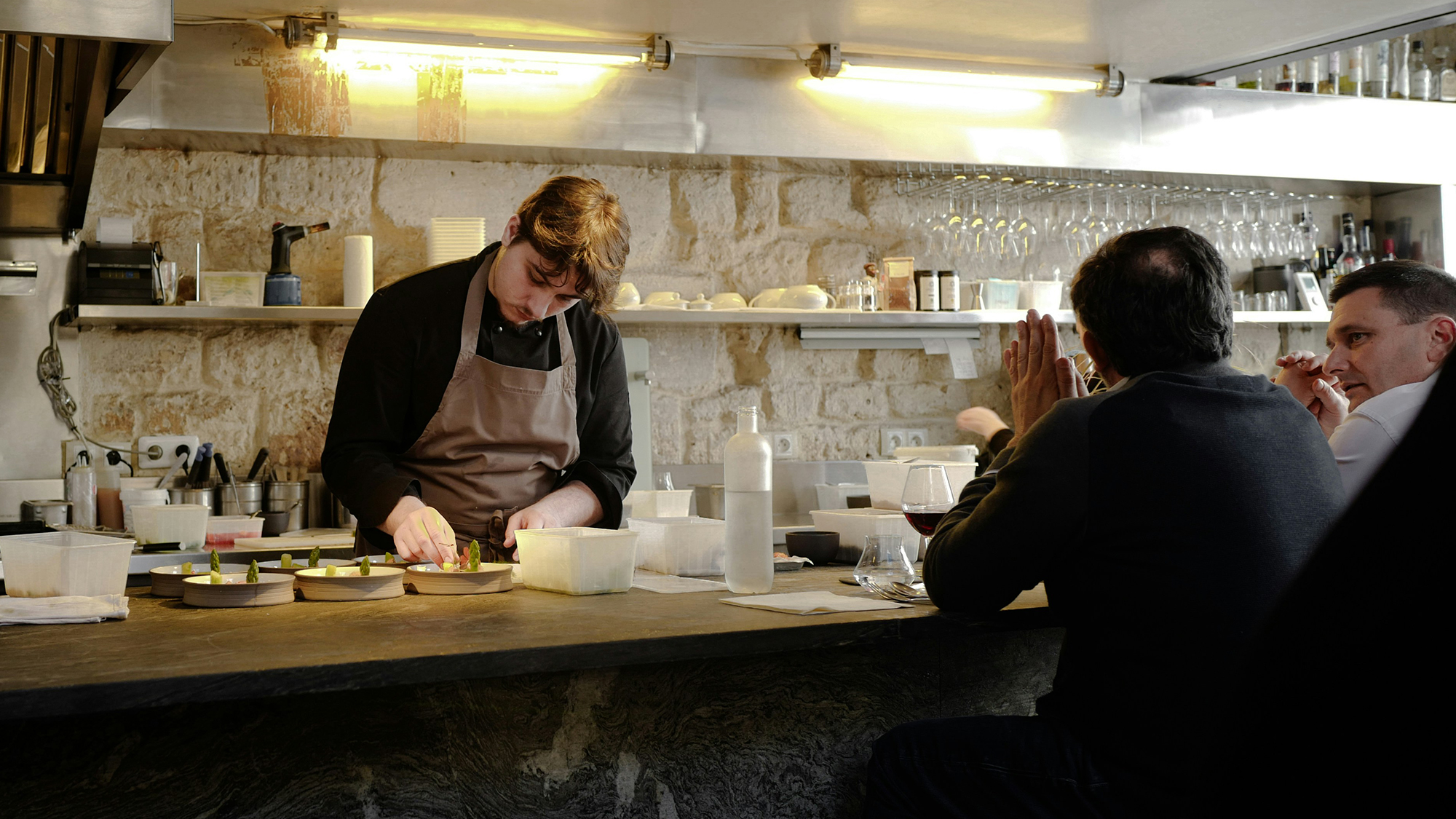



⬇ PDF download: 8 competitive advantages F&B entrepreneurs find compelling in Dubai’s culinary scene
Dubai is a melting pot of cultures, home to people from around the world with diverse backgrounds and culinary preferences. The third annual Dubai Gastronomy Industry Report shows that the emirate is the world’s second leading gastronomy capital (just after Paris), and is overtaking renowned food destinations like London, New York, and Tokyo. This increase helped fuel the rise of the food and beverage industry, which accounted for 3.4% of Dubai’s GDP from Q1 to Q3 2024. As one of the emirate’s profit-generating sectors, the food and beverage industry currently plays an important part in the city’s economic diversification.
For those doing business in Dubai’s F&B sector, it presents a wealth of opportunities supported by a stable economy, strategic location, and thriving tourism. This article series explores the city’s vibrant tourism industry and the vast opportunities supported by a stable economy, pro-business corporate environment, and geographic location. This particular edition covers the eight beneficial factors that make the city’s gastronomy scene a strategic asset for global entrepreneurs.
The release of the MICHELIN Guide Dubai 2025 — the fourth edition since its 2022 debut — cements Dubai’s status as a global fine-dining capital. The guide now features 106 restaurants spanning 35 cuisines, including two restaurants with 3 MICHELIN stars, three restaurants with 2 MICHELIN stars, 14 one-starred restaurants, 22 Bib Gourmand restaurants, 3 Green-starred restaurants, and 78 MICHELIN-selected restaurants.
This globally respected recognition attracts world-renowned chefs and culinary investors. MICHELIN’s growing footprint affirms high customer demand for top-tier gastronomy, offering a compelling reason to set up a business in Dubai that caters to luxury dining.
With nearly 200 nationalities residing in the city, Dubai’s dining scene reflects the world’s most beloved cuisines. East Asian ramen, American smokehouses, Middle Eastern skewered meats, and African-Eurasian fusion concepts are thriving. Trending examples include Korean-Mexican tacos and Pan-African brunch spots. These eclectic offerings make Dubai an ideal location for starting a business that focuses on regional or hybrid cuisine.
Dubai’s F&B is an immersive experience. With artisanal gelato carts, luxurious afternoon teas, and gold-dusted desserts, the city showcases its love for indulgence. A standout creation is the Can’t Get Knafeh of It chocolate bar from local brand FIX Dessert Chocolatier. This unique treat combines pistachio cream, tahini, and knafeh pastry in a chocolate shell and has become a viral sensation on TikTok.
Its popularity has undeniably inspired mass-market variants from renowned international brands. The craze, which led to international stockouts and even a global pistachio shortage, proves how powerful Dubai’s F&B innovation can be.
The food delivery sector of the city has rapidly transformed into a gourmet experience, driven by technology-based platforms that connect both premium and affordable restaurants with a diverse, convenience-seeking population. With a CAGR of 5–8%, popular local platforms are experiencing growth rates of up to 75% annually. This places Dubai among the highest global penetration rates for food delivery.
In 2024 alone, restaurants in the UAE processed over 228,000 delivery orders, reflecting strong demand fuelled by high disposable incomes and changing consumer preferences that prioritise health, affordability, and variety. Additionally, subscription models, loyalty programs, and technological innovations (e.g., AI customisation and autonomous delivery robots) are advancing the wider regional market. These developments offer international food companies scalable, efficient, and dynamic channels to enter Dubai’s food scene.
Seasonal demand during major events like Expo City Dubai and Dubai Food Festival has accelerated the rise of cloud kitchens, pop-ups, and innovative food concepts. The city has become a flexible, low-risk testing ground where international brands and chefs — such as home-based cooks partnering with delivery platforms — can launch delivery-only or short-term residency kitchens before scaling up.
Culinary tourism has become a central part of Dubai’s attraction. Packages now include Emirati cooking classes, fine-dining city tours, and desert dining under the stars. For tour operators and restaurateurs, combining culinary experiences with travel creates multiple revenue streams and adds a premium touch to their offerings.
Social media has significantly influenced consumer behaviour in Dubai’s F&B scene. According to DET, 70% of UAE diners consult social media before choosing where to eat. As such, restaurants are collaborating with regional influencers, food bloggers, and travel content creators to heighten visibility.
As restaurant numbers surge — with 1,200 new licences issued in 2024 alone — so too does the demand for robust supply chains. Entities like Gulfood, Transmed, and IFFCO serve the industry with imported goods, cold storage logistics, and tech-integrated operations. This presents vast opportunities for suppliers, manufacturers, and agri-tech start-ups exploring the Dubai business environment.
The world of food and beverage in Dubai unmistakably provides exceptional dining experiences for tourists and residents alike. Beyond that, it is a key contributor to the city’s economic growth and international positioning. With a landscape of globally talented restaurateurs, a well-connected supply chain, and digital-first consumers, the city presents plenty of possibilities for culinary brands to grow. Whether you’re a chef, supplier, or entrepreneur researching how to start a business in Dubai, the city offers a tested, scalable, and multicultural platform for success.
Don’t forget to share this post!
We use cookies to enhance your experience on our website. If you continue using this website, we assume that you agree with these. Learn more.


